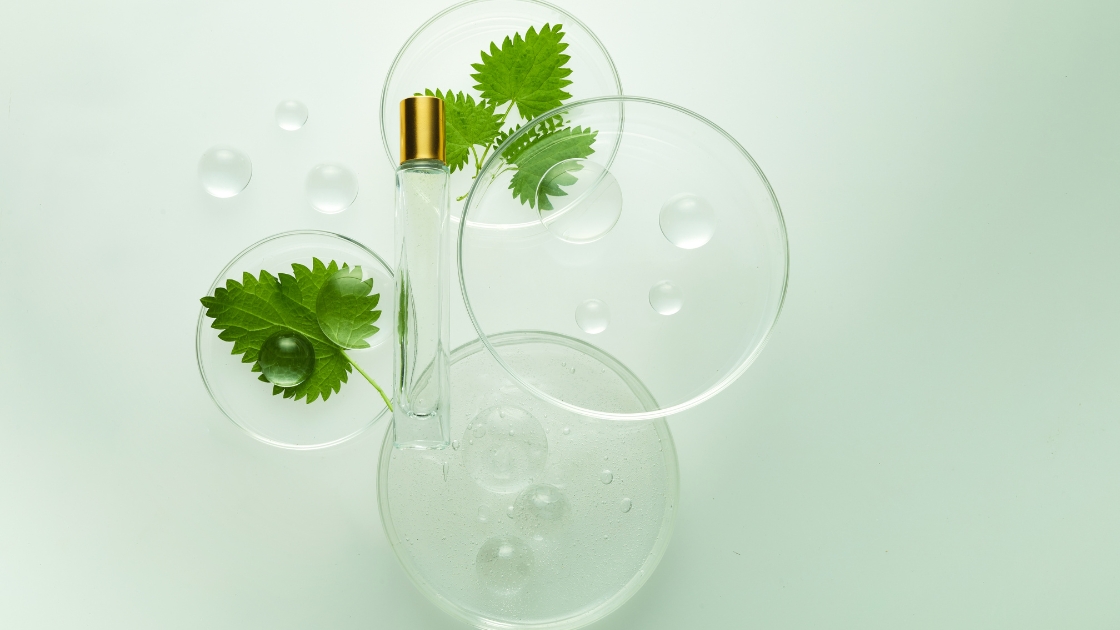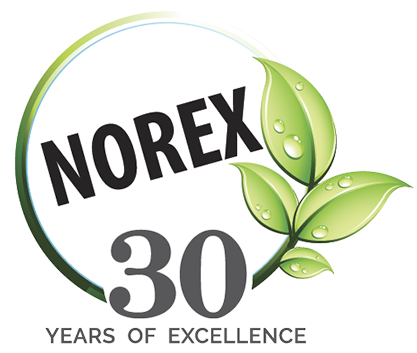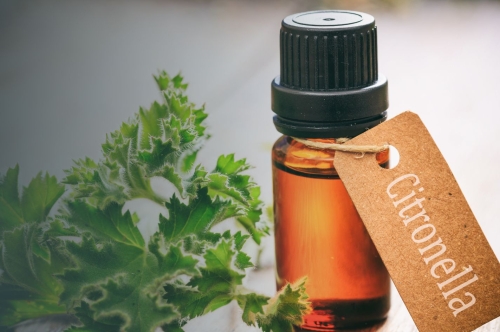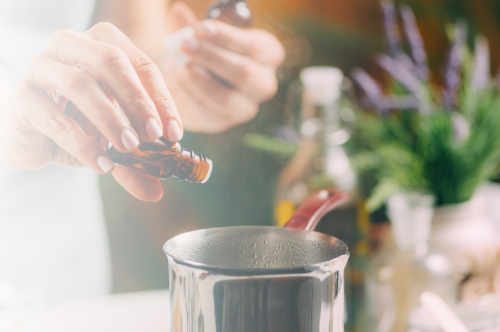Exploring the Fascinating World of Aroma Chemicals | Norex Blogs

Welcome to Norex Blogs, where we embark on a captivating journey into the intriguing realm of aroma chemicals. These aromatic compounds are pivotal in enhancing fragrances and flavours across various industries. Join us as we uncover the secrets of aroma chemistry, delve into the distinctions between natural and synthetic aroma chemicals, and explore their diverse applications, from perfumes to cosmetics and beyond.
Explore a diverse range of high-quality aroma chemicals. Discover the perfect notes for your creations and captivate your senses with our exquisite aroma chemicals.
What are Aroma Chemicals?
Aroma chemicals are synthetic or naturally derived compounds designed to mimic or enhance the fragrances and flavours of nature. These specialized chemicals are essential ingredients in the fragrance and flavour industries, where they play a crucial role in creating a wide array of scents and tastes that captivate our senses.
In perfumery, aroma chemicals are the building blocks of fragrances, allowing perfumers to craft complex and unique scents. They are responsible for replicating the aromas of flowers, fruits, woods, spices, and countless other natural sources. Perfume makers carefully blend these chemicals to create signature scents that evoke emotions, memories, and sensations.
In the food and beverage industry, aroma chemicals enhance flavours in various products, from candies and beverages to baked goods and savoury dishes. They provide consistency and intensity to flavours, ensuring consumers experience the intended taste.
To create pleasant and inviting scents, aroma chemicals are employed in household and personal care products, such as soaps, detergents, and air fresheners. Moreover, they find applications in the pharmaceutical industry to mask the often unpleasant odours of medications.
In essence, aroma chemicals are the invisible artists behind the scents and flavours that enrich our lives, adding depth and complexity to the products we encounter daily. They exemplify the intersection of science and artistry, where chemistry and creativity blend to create sensory experiences that are both delightful and memorable.
Art of Aroma Chemistry
The art of aroma chemistry is a fusion of scientific precision and artistic creativity that revolves around understanding and manipulating aromatic compounds to produce captivating fragrances and flavours. It is a meticulous craft that holds the power to transport individuals to distant memories, evoke profound emotions, and enhance the overall sensory experience.
Aroma chemistry involves synthesising, analysing, and manipulating aroma chemicals, each possessing unique olfactory characteristics. Aroma chemists, often referred to as "noses" in the perfume industry, are akin to alchemists, employing their deep knowledge of molecular structures and sensory perceptions to compose fragrances that are at once alluring and harmonious.
This artistry necessitates a profound understanding of scent molecules' chemistry, the human nose's olfactory receptors, and the psychology of fragrance perception. The perfumer's palette includes a vast array of natural and synthetic aroma chemicals, carefully blended to create a symphony of scents ranging from delicate and floral to intense and woody.
In the art of aroma chemistry, creativity knows no bounds. Perfumers draw inspiration from diverse sources, including nature, culture, and personal experiences, to craft evocative and enduring scents. Each fragrance is a meticulously balanced composition, with top, middle, and base notes that evolve over time, revealing a dynamic olfactory journey.
Therefore, the art of aroma chemistry is not merely a scientific endeavour but a profound expression of human creativity and sensory mastery, reminding us that fragrance is not just a matter of molecules but a gateway to our deepest emotions and memories. It is a testament to the beautiful intersection of science and art that enriches our lives through the gift of scent.
Natural vs. Synthetic Aroma Chemicals
- The debate between natural and synthetic aroma chemicals is a pivotal aspect of the fragrance and flavour industry, each having its own advantages and considerations.
- As the name suggests, natural aroma chemicals are derived directly from natural sources like plants, fruits, flowers, and spices. They are cherished for their authenticity and are often associated with purity. Extracting aroma chemicals naturally can be a sustainable choice when done responsibly.
- On the flip side, natural aroma chemicals can be costly due to seasonal availability, climate fluctuations, and crop yields. Additionally, the variability of natural sources can make maintaining consistency in fragrances and flavours challenging.
- Synthetic aroma chemicals, conversely, are crafted in laboratories, offering precise control over their composition. This consistency is highly valued in perfumery and food manufacturing, where uniformity in scent and taste is essential.
- Synthetic aroma chemicals also often provide cost-effectiveness, as they are not subject to the same environmental and economic fluctuations as natural sources. However, some consumers may perceive synthetic ingredients as less authentic.
- The choice between natural and synthetic aroma chemicals often depends on the specific application and desired outcome. Many products use a combination of both to balance authenticity and consistency. Ultimately, the debate underscores the complex interplay between science, sustainability, and consumer perception in aromatics.
Enhancing Product Appeal: Aroma Chemicals in the Cosmetics Industry
- The cosmetics industry has long recognized the potent allure of aroma chemicals in enhancing product appeal. These carefully crafted aromatic compounds are pivotal in elevating the sensory experience of skincare and beauty products, making them more enticing and memorable.
- One of the primary ways aroma chemicals benefit the cosmetics sector is by imparting delightful scents to products. Whether it's the soothing aroma of lavender in a facial moisturizer or the invigorating citrus notes in a shampoo, these fragrances make products more pleasant to use, evoke positive emotions, and enhance the overall user experience.
- Additionally, aroma chemicals can mask the inherent odours of certain cosmetic ingredients, particularly those with less-than-pleasant natural scents. This is especially crucial in products like sunscreens and medicated creams, where the fragrance can help mitigate any undesirable odours.
- Moreover, the carefully selected scents can align with a brand's identity and create a strong olfactory association with its products, fostering brand loyalty among consumers.
In conclusion, aroma chemicals play a pivotal role in the cosmetics industry, elevating the sensory appeal of skincare and beauty products. Their ability to impart pleasing fragrances, mask undesirable odours, and enhance brand identity makes them indispensable tools for cosmetics companies aiming to create products that perform well and delight the senses.
Check out Aroma Chemical Uses
Aroma Chemical Applications: Candles, Soaps, and Beyond
Aroma chemicals find their aromatic magic extending well beyond perfumes and cosmetics, enriching various products in diverse industries. Their applications are varied and captivating, from soothing candles to invigorating soaps.
Candles: Aroma chemicals play a vital role in scented candles. They infuse wax with enchanting fragrances that fill homes with warmth and ambience. Whether it's the comforting scent of vanilla, the crispness of pine, or the exotic allure of lavender, aroma chemicals transform candles into not just sources of light but also vessels of serenity and nostalgia.
Soaps: Aroma chemicals have long been cherished by the soap-making industry. They bring freshness and luxury to daily cleansing rituals with fragrances that range from the invigorating zest of citrus to the soothing embrace of chamomile. Aroma-infused soaps turn showers and baths into sensory indulgences, leaving skin refreshed and the spirit uplifted.
Aroma chemicals extend their influence to numerous other consumer goods. They enhance detergents, fabric softeners, and cleaning products with pleasant scents that transform chores into fragrant experiences. Aroma-infused products, such as air fresheners, potpourri, and even automotive interiors, create pleasant environments that engage the senses.
Moreover, aroma chemicals find applications in the pharmaceutical industry, where they are used to mask the often bitter or unpleasant tastes and odors of medications, making them more palatable for patients.
In essence, aroma chemicals are the silent artisans behind the fragrant experiences that enrich our daily lives. Their versatility and capacity to evoke emotions and memories ensure that their aromatic influence extends far beyond perfumes and cosmetics, touching almost every aspect of our sensory encounters with the world.
Buy Aroma Chemicals Products from Norex
Frequently Asked Questions
1. Are aroma chemicals safe to use in skincare products?
Aroma chemicals are rigorously tested for safety and are commonly used in skincare products. However, adhering to recommended usage levels and consult with experts when formulating skincare items is essential.
2. Which industries besides perfumery use aroma chemicals?
Aroma chemicals are embraced by the food and beverage industry for flavouring, the household product industry for creating pleasant scents, and the pharmaceutical industry for masking undesirable odours in medications, among others.
3. Can aroma chemicals affect the texture or appearance of a product?
While aroma chemicals are primarily chosen for their olfactory properties, some may have minor impacts on product texture or appearance. However, careful formulation can mitigate these effects to maintain product quality.












